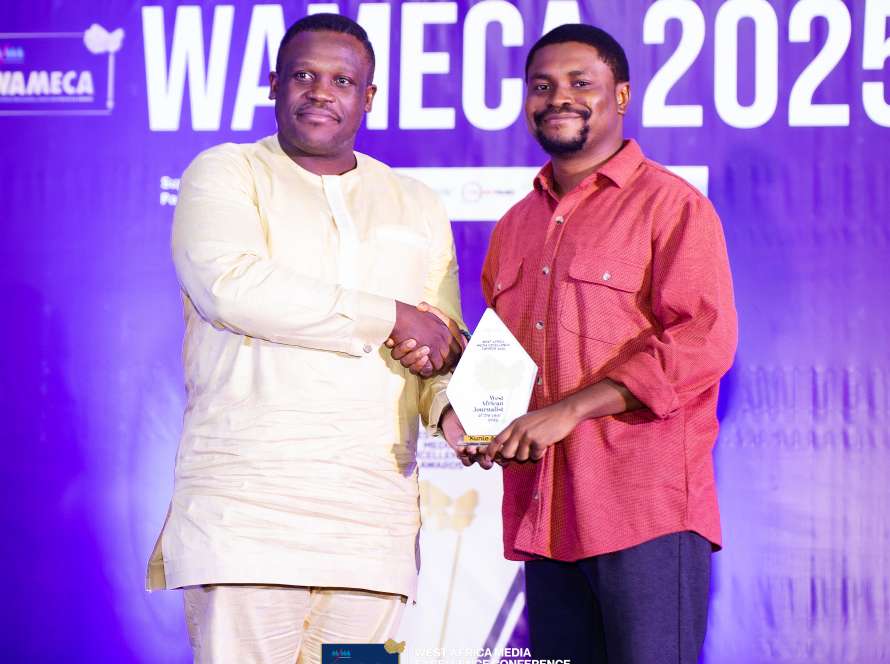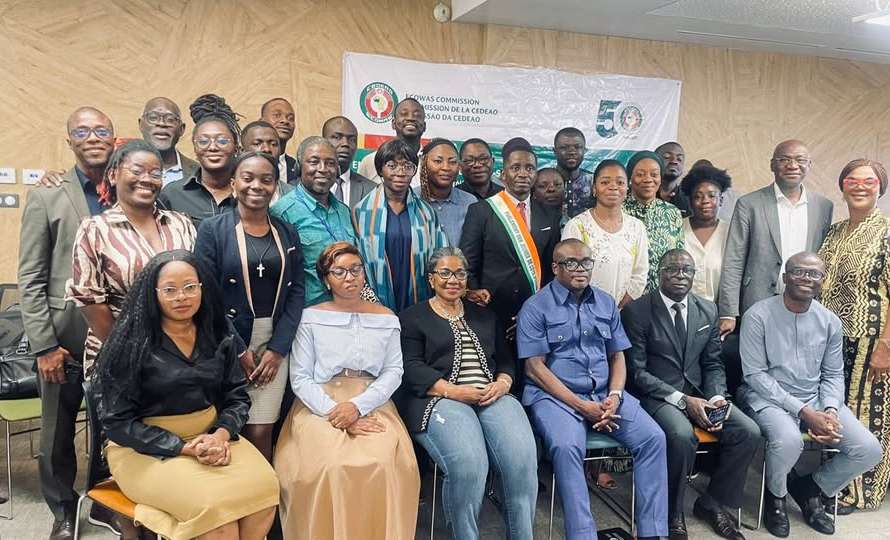After three months of intensive training and story production, ten young journalists of the sixth cohort of the Next Generation Investigative Journalism (NGIJ) Fellowship have successfully completed their programme. To celebrate their achievements and introduce them to the public as trained investigative journalists, a closing ceremony was held in Accra on Friday, 3rd October 2025.
The journalists began their journey in July 2025 after a series of tests and interviews following a nationwide call for applications by the Media Foundation for West Africa (MFWA). Funded by DANIDA through Oxfam in Ghana, the Fellowship sought to build the capacity of journalists in investigative and accountability reporting with a focus on illicit financial flows (IFFs), domestic revenue mobilisation, and tax justice under the project “Strategic Partnership Initiative for Ghana and West Africa.”
The closing ceremony brought together stakeholders from the media, government agencies, civil society, and funding partners. Programme Manager for Institutional Development, Monitoring and Evaluation, Dr Daniel Kwame Ampofo Adjei on behalf of Sulemana Braimah, noted that the Fellowship which falls under the MFWA/Oxfam in Ghana/DANIDA project seeks to address one of Ghana’s most urgent policy challenges: persistent revenue losses through illicit financial flows, tax evasion, and fiscal leakages.
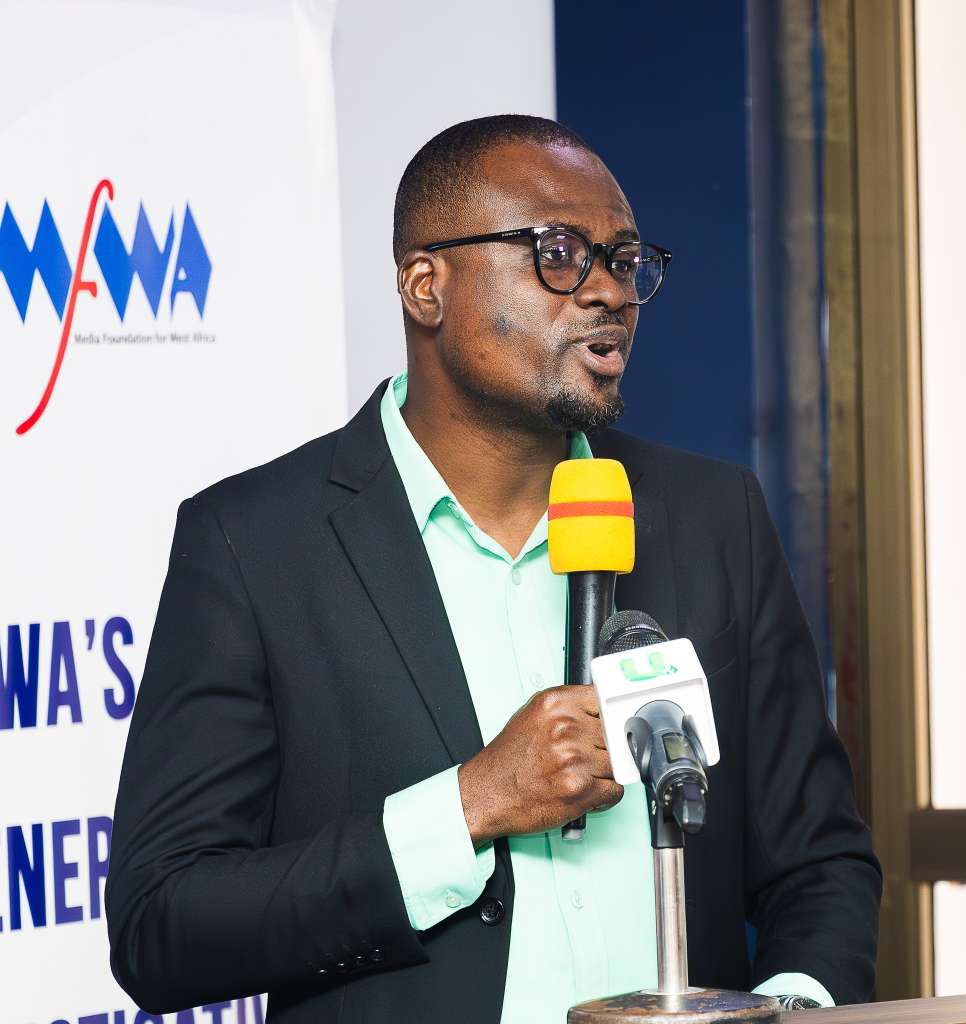
“As we begin today’s proceedings, let us keep in mind the words of the late venerable Kofi Annan: “If corruption is a disease, transparency is a central part of its treatment.” This Fellowship represents one of those treatments, and our Fellows are the frontline workers or practitioners.,” Dr Ampofo Adjei emphasised.
The Country Director of Oxfam in Ghana, Mr. Mohammed-Anwar Sadat Adam, reminded the journalists that journalism is an act of public service aimed at holding power to account and amplifying the voices of marginalised groups.
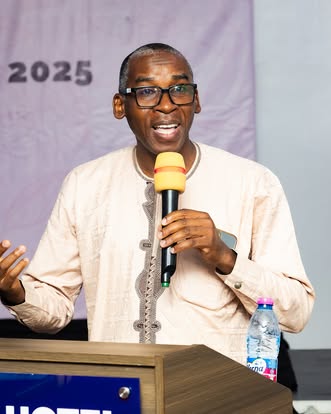
“By rendering public service, you are working to ensure transparency and accountability in how we manage resources in this country. Every cedi lost to illicit financial flows could have gone into building schools, hospitals, or providing clean water,” said Mr. Sadat Adam.
Echoing the beliefs of MFWA, he emphasised that investigative journalism directly contributes to the fight against corruption and promotes equitable development. The Country Director urged the fellows to pursue truth with courage and integrity, and to make corrupt officials and individuals “uncomfortable” with their work.
Present at the ceremony were representatives of the Economic and Organised Crime Office (EOCO) and the Financial Intelligence Centre, the institutions that hosted the fellows for learning visits. Speaking on behalf of Mr. Benjamin Ndego, Deputy Executive Director of Operations at EOCO, Mr. Leo Anothy Siamah, Esq., Director of Legal Affairs at EOCO, described the NGIJ Fellowship as “an essential investment in the future of journalism in Ghana.”
He noted that transparency and credible reporting are crucial to the national fight against corruption, tax evasion, and money laundering.
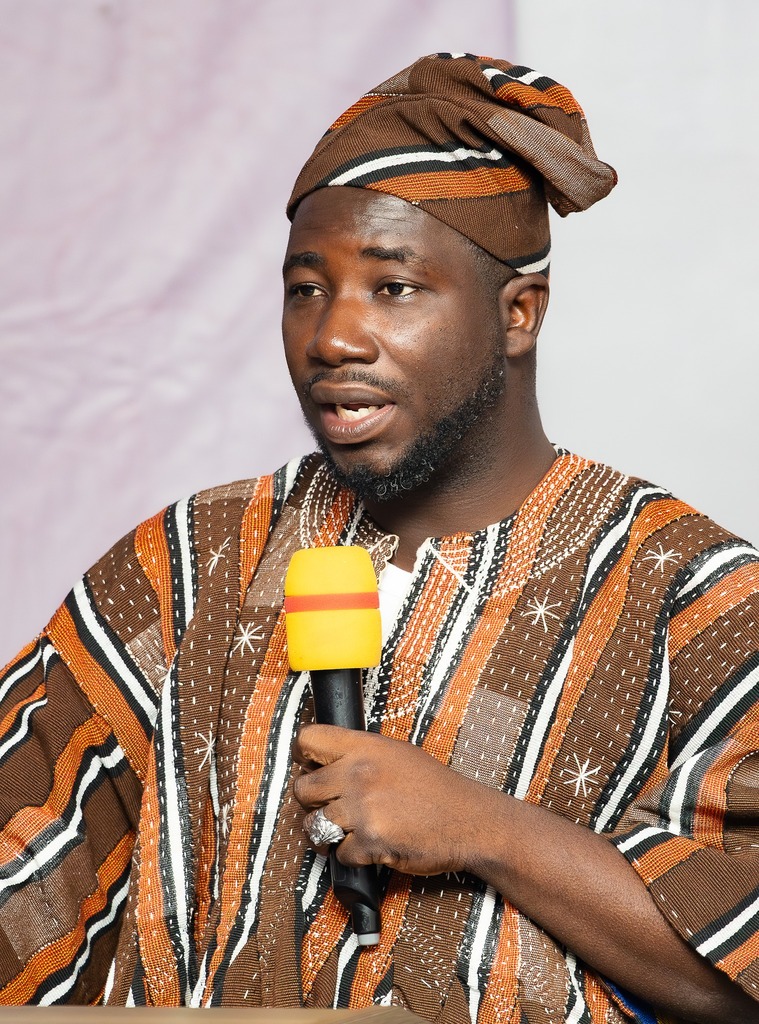
“Journalists are not mere conveyors of information; they are watchdogs of democracy. When you expose illicit financial flows, you empower citizens with knowledge about how their resources are being siphoned away. This awareness can lead to public pressure on government to improve transparency, strengthen regulatory frameworks, and enforce tax justice,” Mr. Siamah stated.
He further urged the next generation of investigative journalists to embrace their responsibility with courage and integrity. The fellows expressed renewed passion for journalism and a commitment to deepen accountability reporting through their stories.
Prinsella Vera Aidoo, a freelance journalist and a fellow of the sixth cohort, said the Fellowship was a significant milestone in her career. She noted that she now feels empowered to create awareness of IFFs and to pursue leads that could expose wrongdoing in society.
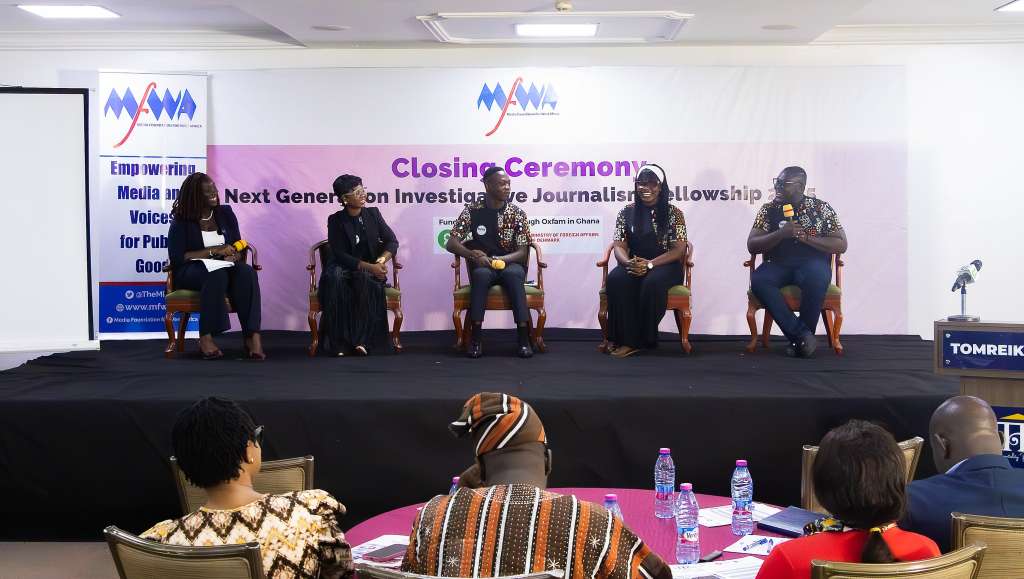
During a panel discussion, Isaac Azumah Abilla shared his intention to revamp the fact-checking desk at GHOne TV, where he works, and to share his newfound knowledge with colleagues to strengthen the outlet’s accountability journalism. For Mark Kwasi Ahumah Smith, one of the key lessons from the Fellowship was collaboration. “Given the transborder nature of IFFs, I look forward to collaborating with other journalists to expose the intricacies of these financial crimes and educate the public on how recovered funds can improve lives,” he said.
Three fellows were recognised for outstanding performance and storytelling excellence: Prince Ato Kwamena Koomson, Winifred Lartey, and Mark Kwasi Ahumah Smith.
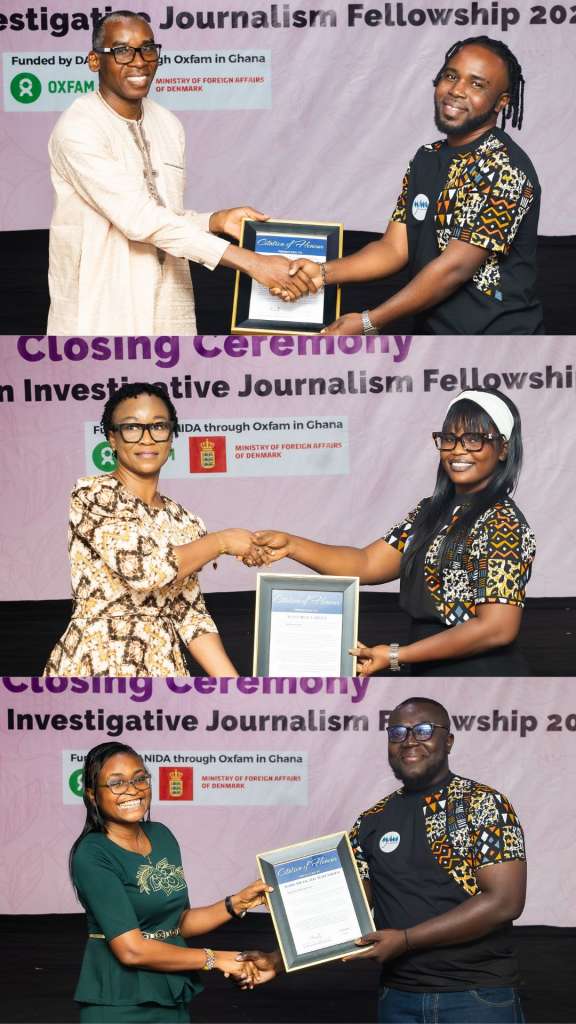
These ten fellows bring the total number of journalists trained and mentored through the NGIJ Fellowship initiative of the MFWA to 63. You can read some stories of the Fellows from the links below.
How Ghana’s debt crisis caused nightmares and injuries on Bolgatanga-Bawku Road
Publicly funded but closed to the public: Ghana’s premium hospitals shut out NHIS patients
Fake tax collectors bleed Accra traders dry
Mobile money robberies: Inside Ghana’s rising cybercrime wave
Domestic Revenue Mobilization: Suame, other assemblies spend more money to collect less
Health Insurance enrollment: Contradictions in claims by Mintah Akandoh and Ato Forson
Muntaka’s claim about Fire Service’s response to 2025 road crashes false





